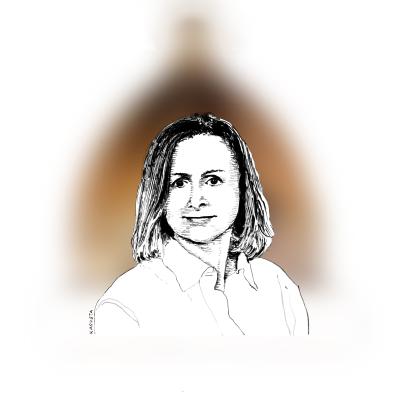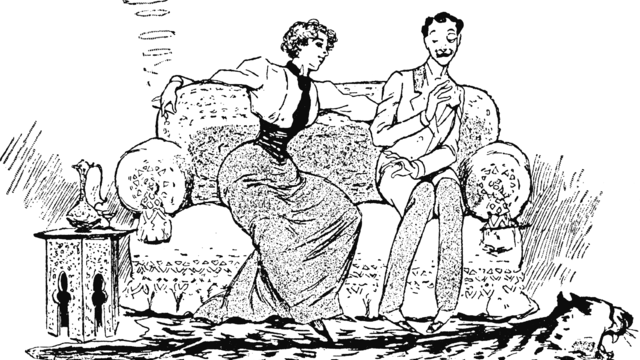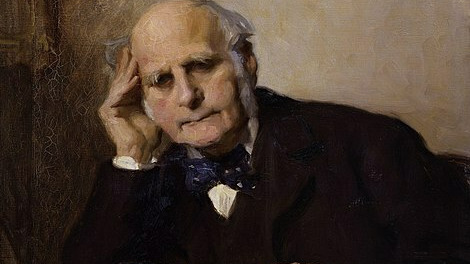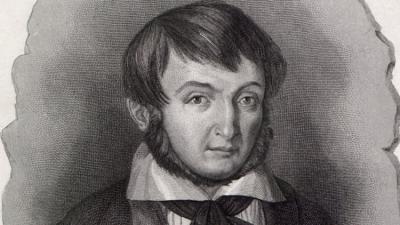In 1750, Jean-Jacques Rousseau won the first prize in a competition organized by the Academy of Dijon, answering the question: “Has the restoration of the sciences and arts contributed to refining moral practices?” He won this prestigious prize with his Discourse on the Arts and Sciences.[1] The originality of the philosopher then consisted in negating common intuitions. In that work, Rousseau argued that the progress of the sciences and arts had corrupted virtues and morals.[2]
Today, we return to the question of civilizational and moral progress. The difference, however, is that while during the French Enlightenment there was widespread optimism, today we are rather pessimistic. Therefore, it makes sense to also start with commonly shared intuitions in this context in order to ask the question whether we should agree with them or not.
While Jean-Jacques Rousseau published his work against the widespread optimism of his contemporaries, the question whether the European Union has contributed to progress leads to a fairly widely shared skepticism towards the European project. This is evidenced by the moments when citizens of the European Union had the opportunity to present their own position on the direction of Europe's development. That took place during discussions on a series of referendums related to the European constitution and then around Brexit.
In 2004 signed was the Treaty establishing a Constitution for Europe.[3] The internal law of some countries required a form of a referendum to adopt that document. In 2005, the French (69 per cent turnout, 55 per cent of votes against) and the Dutch (63 per cent turnout, 62 per cent of votes against) rejected the European Constitution in national referenda.[4] At the same time, they were considered the core of Europe by the most famous philosopher dealing with European issues, Jürgen Habermas.[5] It was then that skepticism related to the direction in which the European Union was heading came to the fore, which was best reflected in the very title of the document reflecting its constitutional nature, appropriate for the new, increasingly federalized political entity that had replaced states. The Lisbon Treaty (2007) did away with the constitutional and federal rhetoric. Ireland remained the only state which required a referendum for the adoption of the Treaty. Despite the change in rhetoric, in 2008 the Irish people spoke out against the Lisbon Treaty (53 per cent turnout, 53 per cent of votes against).[6] Though they represented less than 1 per cent of EU citizens, they were the only ones to speak out, and after the negative results of the constitutional referenda in France and the Netherlands, their opposition gained additional significance. It was not until the second vote in 2009 that the Treaty was approved in Ireland (58 per cent turnout, 67 per cent of votes in favor).[7][8]
Another wave of Euroscepticism spilled over with Brexit.[9] In 2020, the UK left the EU as a result of the 2016 vote.[10] It is difficult to refrain from saying that whenever the project of new Europe collided with the voice of citizens expressed in the referendums, negative opinions were clearly visible. A positive answer to the question whether the European Union can contribute to moral progress, similarly to Jean-Jacques Rousseau's answer, requires a negation of quite common intuitions. At the same time, however, it can be pointed out that Europe significantly contributed to moral development in the past. There are three arguments in favor of this: (1) the constitutions of the countries that make up the European Union are based on the model of human rights; (2) the European Union is based on nation states; and (3) these countries have common political traditions dating back to Roman law, strengthening the legal position of the individual against political authority.
Historically, all three of these elements were not obvious at all, and their introduction may not have contributed to moral progress — as it turned out that each of the achieved levels can be negated — but at least they contributed to progress. Therefore, these elements should be analyzed as they can be considered signs of a certain moral and legal development. After an analysis, one may ask about the sources of the current crisis and potential hopes for the future.
Europe, in the dimension defined by collective consciousness, was built on ideas arising from the Enlightenment, which led to the events and rhetoric associated with the French Revolution. Among modern researchers, one can find different assessments of the Age of Lights. Undoubtedly, the revolutionary mood introduced at that time resulted in a wave of violence[11], negating the earlier monarchical order.[12] It declared a fight against religion, considering it the main source of superstition.[13] The destroyed Christian temples were replaced by the temples of reason, the power of the people took the form of a struggle over who should represent the people, which led to powerful waves of violence. The revolutionaries fighting tsarism in Russia in 1917 saw themselves as continuators of the great French Revolution, which they considered an unfinished project that required completion by means of egalitarian changes in the economic and social dimensions.[14]
However, one can look at this process by paying attention to the positive changes consistent with the modernization process. Well, the process of emancipation initiated by the French Revolution, first of urban dwellers and then of the poor, which granted civil and political rights to those groups resulted in a powerful economic and social development. There was a need for universal education, reading was popularized, and wide-ranging social programs emerged. In the social and political arena, matured a large number of people previously deeply dependent on the upper social classes. This process is referred to as the process of emancipation and democratization, with the idea of autonomy at its core.[15]
1. The Constitutions of the Countries That Make Up the European Union Are Based on the Model of Human Rights
One of the precursors of individual freedom and autonomy was Jean-Jacques Rousseau. The philosopher treated the individual as prior to power, which led him towards the concept of the social contract. The concept of an individual, understood as taking precedence over society, having rights before any political structure, indicated philosophical inspirations and references to the republican Roman tradition. Numerous rhetorical and metaphorical references to Rome were present both in the writings of Jean-Jacques Rousseau and in the revolutionary rhetoric of the French Revolution.[16] Only Thomas Hobbes combined the will of individuals with the monarchical principle of exercising power. Other philosophers, for example, Locke and Rousseau, pointed to the sovereignty of the people. The sovereign, according to this view, was not a divinely appointed monarch, but an individual and a people composed of individuals. In the case of Rousseau, the result was the collective will, which was a reference to the Greek direct democracy rather than to the Roman republicanism, but the debate among the Founding Fathers of the United States led to a formation of a republic with a mixed regime based on the rule of law. In both cases, however, individual rights arising from the idea of autonomy, indicated an order prior to authority and rooted in the will of individuals. Civil rights led to the emancipation of wide groups of people, who in Europe were recognized as legitimate subjects of legal relations; political laws reorganized the map of the continent, reshaping the borders to suit the will of the people to the fullest extent.
2. The European Union is Made Up of Nation States
During the French Revolution, human rights were commonly associated with civil rights. According to the rights of the citizen, the shape of the government was to be decided on by the individual. That decision had a direct political dimension, introducing various forms of voting and elections, but also indirect as it occurred that people should also express their will as to which political community they want to belong to. Political rights thus led to the application of the principle of collective self-determination. This principle, in turn, influenced the present shape of Europe. It was adopted as a general rule after the First World War.[17] The Covenant of the League of Nations was adopted at the plenary session of the Peace Conference on 28 April 1919. In the same year, the Treaty of Versailles was signed and then came into force with the League of Nations Act in 1920. According to the logic of individual autonomy, a number of referenda were held. Although Prussia lost the war, it did not fall apart, but the Austro-Hungarian Monarchy did as its monarchical power collapsed under the pressure of the rule of collective self-determination. According to the same rule, Poland gained independence. Human rights linked to citizens' rights and the right to collective self-determination have also caused problems. One of them was the desire to unite in one country all German-speaking people and people who were loyal to Germany.
3. The Countries Making Up the European Union Share Common Political Traditions Dating Back to Roman Law, Natural Law, and Restrained Government
The whole process grew out of a common European political and legal tradition. Under the banner of “human rights”, the French revolutionaries introduced the ideal of autonomy expressed in civil and political rights. However, the combination of civil and political rights meant that human rights acted essentially as citizens' rights, because they required an effective authority to protect them. Revolutionary ideals combined prior civil and political rights with the right to demand that the government secure them. As long as the government failed to fulfill its role, defend civil rights, or implement political rights, it could be changed.
These claims, however, were limited to the increasingly distinct shape of nation states. Within those states, human rights could protect both individuals and minorities from the majority but they were incapable of defending “people as people”. Such protection required the transfer of the idea of human rights onto the international level. That happened after the Second World War. To make that move possible, to protect individuals and entire groups who were not protected in their own countries or became stateless, it was decided to create an international order for the protection of human rights. Again, it was Europe that was the place where the legal and international order protecting human rights across the borders of nation states was built. The enormity of the crimes committed during the Second World War led to a recognition that protection should be transferred onto the international level. In fact, from this perspective, the Nuremberg trials can be seen as another step towards what Europe became after the war. It was assumed that human dignity had precedence over statutory law, which made the statutory laws that did not recognize it lose their legal force. Such an assumption became necessary, if anyone wished to the greatest war criminals of the Third Reich on trial. They were responsible for committing “crimes against humanity” because they had violated the “basic precepts of humanity”.[18]
The basis for that accountability could not be international law, because the agreements regulating the scope of accountability — the Agreement and the London Charter of 8 August 1945, were concluded after the crime had been committed and Germany had capitulated. The basis for accountability was not the German law either, because the acts of which the defendants were accused were not covered by criminal sanctions in Germany. Besides, the defense argued that as the acts committed by the defendants had been legal under the German law, the defendants could not be held accountable for actions that were lawful at the time they were committed. The Court ruled otherwise, pointing to the principles of international law and the “basic imperatives of humanity” fundamental to any legal order.
The actions of the Tribunal could be explained in accordance with legal positivism: (1) that by way of exception, it applied moral principles even though they were not law; or (2) that it applied rights formulated in the Charter, thanks to which moral principles took on the nature of rules of law. The proceedings of the Tribunal, however, were best explained by the category of dignity, according to which the adopted moral principles were also rules of higher law, applicable always and everywhere, also in Germany, and the fact that the Charter was adopted after the crime had been committed had no bearing on the legal evaluation of the crime.
In 1948 published was the Universal Declaration of Human Rights. It referred to the rights that had precedence over the authorities and were vested in every individual. On the basis of the Declaration, two years later the European Convention for the Protection of Human Rights and Fundamental Freedoms, drawn up in Rome in 1950, was adopted by the Council of Europe.[19] As a result, not only the European Union, but more broadly understood Europe was based on three principles: (1) the principle of human rights; (2) the principle of linking human rights with the rights of citizens, which formed a framework for nation states; and (3) principle of limitation of power by a higher order of law. All these principles contribute to the moral and legal development of Europe. So the answer to the question is formulated in a slightly different way. What happened? Why are European citizens skeptical of and unfavorable to the successive European projects? Why have the achieved solutions failed to capture the collective imagination?
Unfortunately, the problem seems to lie in the unequal development of the various elements of the European project. Today, the language of human rights is increasingly used inconsistently with the above-mentioned three themes. Representatives of the European intellectual and political elites tend to interpret the first point, that is, individual rights, in such a broad way that those rights lose their connection with political rights and are used to build arguments for a strong European government. As a result, the language of human rights protection can result in a break from the essential political freedom of the people. The discussion about the reason why Europeans expressed their skepticism in the referenda is being replaced by a series of progressive political and administrative decisions aimed at changing the social will. Political rights of people are marginalized, individual and collective agency is withering. As a result, the protective element stemming from the idea of human rights, according to which every authority, including the European one, should be limited by a higher order of law, is losing its importance. The level of collective self-determination is going down, leading to numerous problems in the practical implementation of subsidiarity. Individual autonomy, deprived of its roots in the collectively expressed will, is becoming void. The answer to the question as to whether and how the European Union can contribute to moral progress is positive: yes, the European Union may contribute to progress, but only as long as the European law and state institutions are based on human rights, accompanied with civil rights which facilitate the collectively expressed will. On the European level, such presumptions manifest themselves in the principle of subsidiarity. There is no need to stress that all levels of government, not only national, but also European, should be limited due to the order prior to them. Only then will it be possible to consider in which direction this development should go.
* This article was originally published in the book entitled EU and Moral Progress, Ośrodek Myśli Politycznej (Centre for Political Thought), Kraków 2022.
[1] Jean-Jacques Rousseau, The Discourses and Other Early Political Writings, translated by Victor Gourevitch (Cambridge, New York: Cambridge University Press, 2019).
[2] For Jean-Jacques Rousseau's political philosophy see: The Cambridge Companion to Rousseau, ed. Patrick Riley (Cambridge, New York: Cambridge University Press, 2001).
[3] Document C:2004:310:TOC, Official Journal of the European Union, C 310, 16 December 2004, accessed 30 August 2023, https:// eur-lex.europa.eu/legal-content/EN/ALL/?uri=OJ:C:2004:310:TOC.
[4] Agnieszka Nogal, Ponad prawem narodowym. Konstytucyjne idee Europy (Warsaw: Wydawnictwo ISPPAN, 2009), p. 278.
[5] Jürgen Habermas, The Divided West, translated by Ciaran Chronic, first edition Der gespaltene Westen (2004) (Cambridge: Polity Press), p. 51.
[6] Agnieszka Nogal, Ponad prawem narodowym. Konstytucyjne idee Europy (Warsaw: Wydawnictwo ISPPAN, 2009), p. 285.
[7] “The Treaty of Lisbon after the Second Irish Referendum,” Research Paper 09/75, 8 October 2009, p. 35, accessed 30 August.
[8] https://researchbriefings.files.parliament.uk/documents/RP 09-75/RP09-75.pdf.
[9] Sara Hobolt, Thomas Leeper and James Tilley, Divided by the Vote: Affective Polarization in the Wake of the Brexit Referendum, British Journal of Political Science 51 (2021): 1476–1493.
[10] Majority of voters (52 percent) were in favor of the UK leaving the European Union. The turnout of 72 per cent was the highest recorded for many years in a national vote. See: Matthew Goodwin and Oliver Heath, “The 2016 Referendum, Brexit and the Left Behind: An Aggregate-level Analysis of the Result”, The Political Quarterly, vol. 87, no. 3 (2016): 325.
[11] Ian Haywood, Disturbed Imagination: The French Revolution in: Bloody Romanticism Spectacular Violence and the Politics of Representation, 1776–1832 (Basingstoke: Palgrave Macmillan, 2006), pp. 60‒102.
[12] David Andress, The Terror: Civil War in the French Revolution (London: Abacus, 2006).
[13] Luigi Mezzadri, Rewolucja francuska a Kościół, translated by Ewa Łukaszyk (Cracow: Wydawnictwo WAM, 2007).
[14] Jay Bergman, The French Revolutionary Tradition in Russian and Soviet Politics, Political Thought, and Culture (Oxford: Oxford University Press, 2019), p. 471.
[15] Thomas Hill, The Kantian Conception of Autonomy in: The Inner Citadel: Essays on Individual Autonomy, ed. John Christman (New York, Oxford: Oxford University Press, 1989), pp. 91‒105.
[16] John McCormick, Rousseau's Rome and the Repudiation of Populist Republicanism, Critical Review of International Social and Political Philosophy, vol. 10, no. 1 (2007): 3.
[17] Hannah Arendt, Origins of Totalitarianism (San Diego, New York, London: A Harvest Book, Harcourt Brace & Company, 1979), p. 270.
[18] Luis Kutner and Beverly May Carl, An international Writ of Habeas Corpus: Protection of Personal Liberty in a World of Diverse Systems of Public Order, University of Pittsburgh Law Review, vol. 22, no. 3 (1961): 537.
[19] More about human rights in the European legal order see: A. Nogal, Ponad prawem narodowym. Konstytucyjne idee Europy (Warsaw: Wydawnictwo ISPPAN, 2009), pp. 113‒136.
Read also
Problem of Expertise in Nowadays Europe
One of the problems with which not only European but Western liberal democracy is struggling today is the problem of knowledge and its relation to politics.














Comments (0)